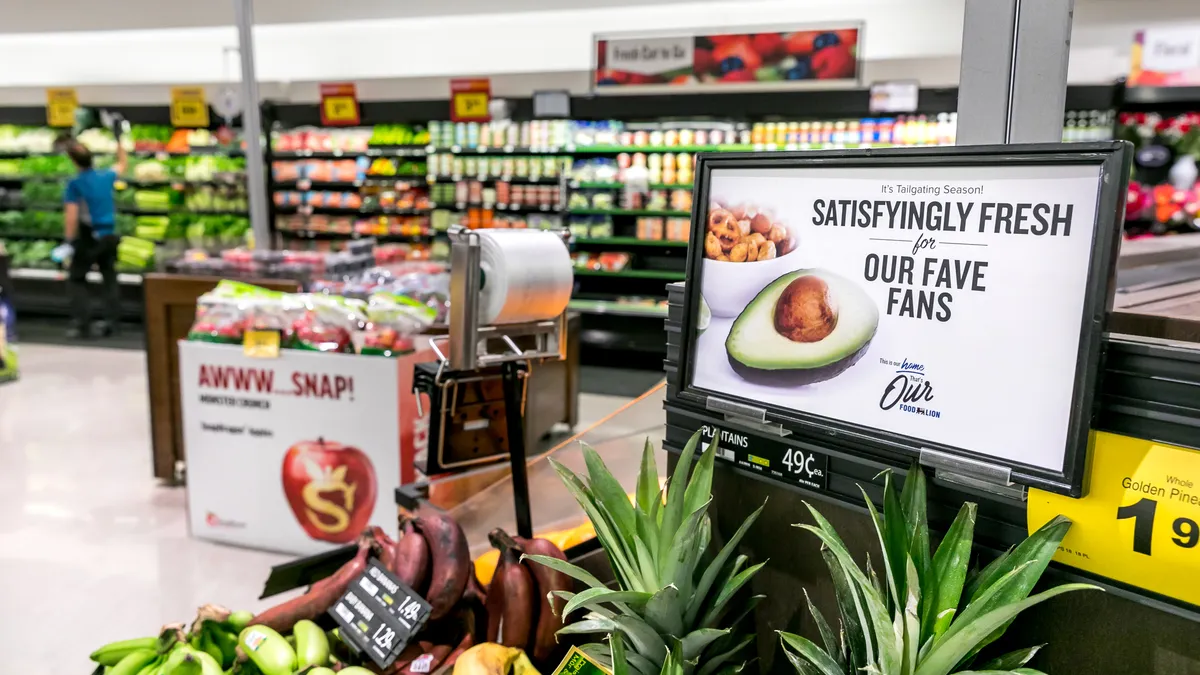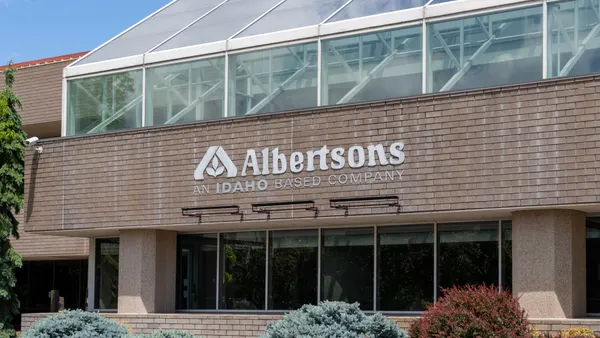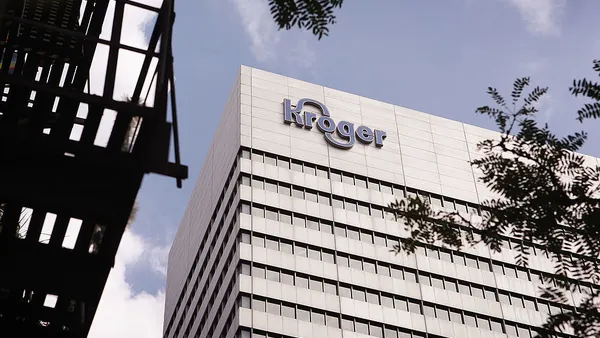Dive Brief:
- The number of jobs at food and beverage stores rose by 8,600 in July, to just under 3.2 million, building on a smaller increase during the previous month, according to preliminary data released by the U.S. Bureau of Labor Statistics (BLS) on Friday.
- Restaurants and bars added about 74,000 positions to their payrolls in July as the leisure and hospitality sector continued to build momentum, the BLS said.
- Grocery store employment swelled last month as the overall job market grew at its fastest clip since last February and the unemployment rate dropped to 3.5% — a level last seen in February 2020.
Dive Insight:
Grocery stores were out in front in terms of retail sector job creation in July, reprising their strong performance in June. Employment in the food retailing industry has now expanded for two months in a row following a decline in May, reflecting brisk efforts by grocers to bring on employees in a highly competitive job market.
General merchandise stores, including warehouse clubs and supercenters, also bulked up on workers in July, adding 7,900 positions, according to the BLS.
Employment in the U.S. expanded in July by 528,000 positions, up from 372,000 in June — a pace that surprised economists and suggests the Federal Reserve will continue to sharply raise interest rates as it looks to fight inflation. Sales at grocery stores rose 8.3% year-over-year in June, fueled by food-at-home inflation that hit 12.2% — its highest level since April 1979.
The overall Consumer Price Index increased at a 9.1% annual rate in June, the fastest pace since November 1981. Inflation statistics for July are due for release by the BLS on Wednesday.
While the BLS noted that the number of non-farm jobs in the economy and the unemployment rate have both recovered from the shocks brought on by the pandemic, persistently high inflation continues as a key worry for policymakers. Sharply cutting inflation is essential “if we are to have a sustained period of strong labor market conditions that benefit all,” Federal Reserve Chair Jerome Powell said during a July 27 press conference.
Powell added that he believes fast-rising food prices loom as an especially troubling sign for the economy, particularly for lower-income people.
“They're suffering from high inflation. You're going to [the] grocery store and finding that in many cases, their paycheck doesn't cover the food they're accustomed to buying,” Powell said. “We're seeing actual real declines in food consumption. And it's very concerning. It's very unfortunate. And that's why we're really committed to bringing down inflation.”
The central bank has sharply increased interest rates this year as it looks to slow inflation, and stock market investors are predicting the Federal Reserve will react to the strong July employment figures by raising rates again next month, CNBC reported last week.














